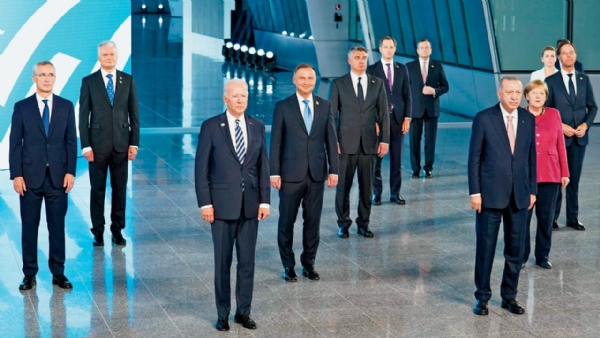NATO leaders express concerns about China's security aggression; declares it a global security challenge
15 Jun 2021 11:31:12
Brussels, June 15: Leaders of the North Atlantic Treaty Organization ( NATO ), an intergovernmental military alliance between 30 European and North American countries, declared that China poses a constant security challenge and is working to undermine global order. They said they're worried about how fast the Chinese are developing nuclear missiles.

At the first meeting of NATO since 2019, China was central to the discussions as it has branded China as presenting "systemic challenges" in a statement and vowed to counter Beijing's rise.
"China's stated ambitions and assertive behavior present systemic challenges to the rules-based international order and to areas relevant to alliance security," the statement said. It added, "We are concerned by those coercive policies which stand in contrast to the fundamental values enshrined in the Washington Treaty."
Also Read: India to study US plan to counter China's Belt & Road Initiative
In a news conference after the summit's conclusion, NATO Secretary-General Jens Stoltenberg said that the body was concerned that China was "rapidly expanding its nuclear arsenal, with more warheads and a large number of sophisticated, sophisticated delivery systems", as well as its military cooperation with Russia and its "use of misinformation". He also warned China is coming closer to Nato in military and technological terms. But he stressed the alliance does not want a new Cold War with China.
Also Read: Former Chinese Policeman reveals chilling information about Uyghur camps in Xinjiang
"We remain concerned with China's frequent lack of transparency and use of information," it said. The NATO leaders called on China to "uphold its international commitments and to act responsibly in the international system including in the space, cyber, and maritime domains, in keeping with its role as a major power."
Also Read: China shares no change in its stand on Kashmir issue while it defends CPEC
Apart from this, the allies have urged China to engage meaningfull in dialogue, confidence-building, and transparency measures regarding nuclear capabilities and doctrine. Meanwhile, the 79-point statement devoted three paragraphs and 10 mentions to China.
.
.
.